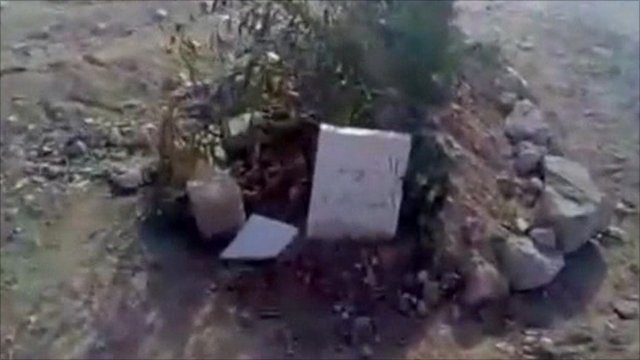 Syrian security forces have continued their siege of the central city of Hama as they maintain an offensive in which scores of people have died.
Syrian security forces have continued their siege of the central city of Hama as they maintain an offensive in which scores of people have died.
Residents told the BBC that many people were fleeing to nearby villages, fearing a full-scale assault.
The government does not control Hama, and its attack on the city is part of a nationwide crackdown on dissent that began on Sunday.
The UN Security Council is set to resume discussions on the crisis.
International pressure has been mounting on the Syrian government to call off its offensive against Hama.
However, diplomats say a strong UN resolution is unlikely, and on Tuesday, the Security Council was unable to agree to a text condemning the violence.
Syrian Defence Minister Ali Habib was among five Syrian officials targeted by European Union asset freezes and travel bans, the EU said on Tuesday.
And Italy has recalled its ambassador to Syria for consultations, citing the "horrible repression" of citizens.
In Washington, US Secretary of State Hillary Clinton met Syrian dissidents, who pressed her to call on Syrian President Bashar al-Assad to step down immediately.
Mrs Clinton "expressed her admiration for the courage of the brave Syrian people who continue to defy the government's brutality", a state department spokesman said.
Human rights groups say some 140 people have been killed by the authorities since Sunday, most of them in Hama. More than 1,600 civilians are believed to have been killed since protests began in March.
President Assad has promised reforms but says citizens and security forces are being attacked by "armed gangs" backed by unspecified foreign powers.
International journalists have been denied access to Syria and it is not possible to verify accounts by witnesses and activists.
'Guns and knives'
After renewing their assault on Hama on Tuesday, Syrian tanks and troops held their positions around the city. Residents said three more people were killed by tank and sniper fire.
Residents told Reuters news agency that the violence resumed after nightly Ramadan prayers on Tuesday, with tanks shelling the eastern Rubaii and al-Hamidiya neighbourhoods, the Aleppo road in the north and the eastern Baath district.
Witnesses and activists told Reuters that tens of people had also been injured after troops opened fire in western Damascus, in the north-eastern city of Hasaka, and in the coastal city of Latakia.
Mobile phone footage purporting to show tanks firing in Hama on Monday was posted on social media websites.
But Syrian state television has been showing its own footage, apparently also shot on mobile phones, saying it was taken in Hama on Sunday.
It showed some anti-government protesters carrying shotguns, sticks, and knives, and one man wearing an ammunition vest and carrying an AK-47 rifle.
Later, it reported that a group of "saboteurs" had stormed the main courthouse in Hama and set fire to much of the building.
But Mr Hamawi told AP that a shell fired from a government tank had caused the fire.
The London-based Syrian Observatory for Human Rights said 24 people were killed across Syria on Monday, including 10 in Hama.
The current crackdown appears aimed at preventing protests from growing during Ramadan, when Muslims visit mosques for prayers after breaking their dawn-to-dusk fast.
The government fears the gatherings could then turn into large protests, observers say.
'Totally unacceptable'
The UN Security Council is due to resume the debate on Wednesday.
Council members including Russia, China, India and Brazil have been opposed to a draft resolution circulated by European members that would condemn Damascus.
Diplomats said significant differences remained over the text and it had not been decided whether the end result should be a resolution or a less weighty council statement.
Russia and some other countries are pushing for what they say is a more balanced text that would blame both Syrian authorities and the opposition for the violence, but Western nations say the two sides cannot be equated.
But the latest violence has led to wider acceptance that the council must act.
As the council met again on Tuesday, UN Secretary General Ban Ki-moon condemned the Syrian president.
"This is a totally unacceptable situation," Mr Ban said. "I believe that he lost all sense of humanity."



